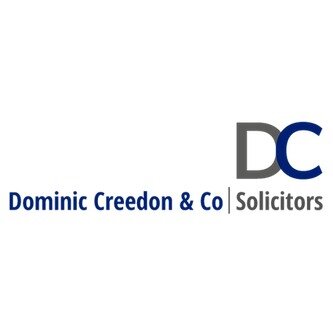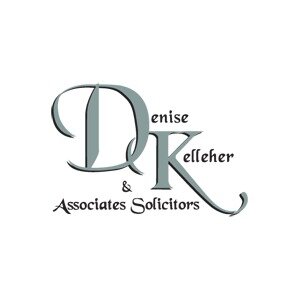Best Real Estate Due Diligence Lawyers in Cork
Share your needs with us, get contacted by law firms.
Free. Takes 2 min.
Free Guide to Hiring a Real Estate Lawyer
List of the best lawyers in Cork, Ireland
About Real Estate Due Diligence Law in Cork, Ireland
Real Estate Due Diligence in Cork, Ireland, involves a comprehensive assessment process to evaluate the legal, financial, and physical aspects of a property before completing a transaction. This process ensures that all potential risks are identified and mitigated, providing peace of mind and security for buyers, sellers, and financiers. By understanding the due diligence requirements, stakeholders can make informed decisions, thereby avoiding unforeseen complications later on.
Why You May Need a Lawyer
Engaging a lawyer for Real Estate Due Diligence can be crucial in several situations:
- Property Transactions: Whether buying, selling, or leasing, legal advice ensures all terms and conditions are clear and enforceable.
- Title Investigation: Lawyers can verify ownership, identify any encumbrances or liens, and ensure a clear title transfer.
- Contract Review: Legal professionals are skilled at scrutinizing contracts to safeguard your interests and ensure compliance with local laws.
- Zoning and Compliance: Ensuring the property complies with zoning regulations and planning permissions can prevent legal disputes down the line.
- Property Disputes: In any conflicts regarding property boundaries, easements, or other disputes, legal expertise can be invaluable for resolution.
Local Laws Overview
In Cork, Ireland, several key aspects of local law are particularly relevant to Real Estate Due Diligence:
- Title and Registration: The Land Registry system maintains records of land ownership, and conducting a thorough title investigation can reveal any issues with the property's title.
- Planning and Development Regulations: Local planning authorities oversee developments and land use in compliance with national and regional plans.
- Building Regulations: Compliance with safety, health, and environmental standards is mandatory for all buildings.
- Environmental Due Diligence: Assessments may be necessary to identify any contamination or environmental risks associated with the property.
- Tax Implications: Understanding local property taxes including stamp duty, Capital Gains Tax, and other levies is important.
Frequently Asked Questions
What is Real Estate Due Diligence?
Real Estate Due Diligence is the process of evaluating and verifying the legal, financial, and physical condition of a property before a transaction is completed.
Why is Due Diligence important?
It helps identify any potential risks or issues that could affect the property's value or legality, ensuring informed and secure decision-making.
What are the main components of Real Estate Due Diligence?
The main components include title examination, property inspection, financial audit, and compliance with zoning and environmental regulations.
How long does the Due Diligence process take?
The timeline can vary depending on the complexity of the property but generally ranges from a few weeks to a few months.
What documents are typically reviewed during Due Diligence?
Key documents include the title deeds, planning permissions, surveys, building compliance certificates, and financial records.
Can I perform Due Diligence myself?
While some aspects can be managed independently, hiring a professional lawyer or real estate expert ensures a thorough and legally sound review.
What happens if issues are found during Due Diligence?
If significant problems are identified, you can renegotiate terms, request repairs or corrections, or even withdraw from the transaction.
What is a title search?
A title search verifies the legal ownership of the property and checks for any encumbrances, liens, or disputes affecting the title.
How do environmental regulations impact property transactions in Cork?
Properties must comply with environmental standards to avoid liabilities. An environmental assessment can reveal issues like contamination that need addressing.
What role does a lawyer play in the Due Diligence process?
A lawyer provides expertise in reviewing legal documents, ensuring compliance with local laws, resolving disputes, and securing a clear title transfer.
Additional Resources
For further assistance with Real Estate Due Diligence in Cork, Ireland, consider the following resources:
- Property Registration Authority (PRA): Provides information on land registration and title certification.
- Local Planning Authorities: Offer guidance on zoning, planning permissions, and development regulations.
- Law Society of Ireland: Can help you find qualified real estate lawyers in Cork.
- Environmental Protection Agency (EPA): Publishes guidelines and regulations on environmental compliance.
Next Steps
If you need legal assistance with Real Estate Due Diligence:
- Identify Your Needs: Clearly define the aspects of the property transaction where you require legal insight.
- Research and Select a Qualified Lawyer: Look for experienced real estate lawyers in Cork with a solid reputation and relevant expertise.
- Prepare Your Documentation: Gather all relevant property documents, contracts, and permits to streamline the review process.
- Schedule a Consultation: Arrange a meeting with your chosen lawyer to discuss your needs and develop a Due Diligence plan.
- Follow Professional Advice: Adhere to the guidance provided by your lawyer to ensure a comprehensive and compliant Due Diligence process.
Lawzana helps you find the best lawyers and law firms in Cork through a curated and pre-screened list of qualified legal professionals. Our platform offers rankings and detailed profiles of attorneys and law firms, allowing you to compare based on practice areas, including Real Estate Due Diligence, experience, and client feedback.
Each profile includes a description of the firm's areas of practice, client reviews, team members and partners, year of establishment, spoken languages, office locations, contact information, social media presence, and any published articles or resources. Most firms on our platform speak English and are experienced in both local and international legal matters.
Get a quote from top-rated law firms in Cork, Ireland — quickly, securely, and without unnecessary hassle.
Disclaimer:
The information provided on this page is for general informational purposes only and does not constitute legal advice. While we strive to ensure the accuracy and relevance of the content, legal information may change over time, and interpretations of the law can vary. You should always consult with a qualified legal professional for advice specific to your situation.
We disclaim all liability for actions taken or not taken based on the content of this page. If you believe any information is incorrect or outdated, please contact us, and we will review and update it where appropriate.
















